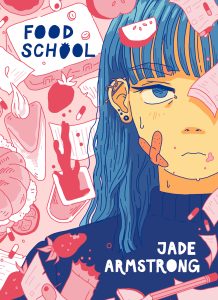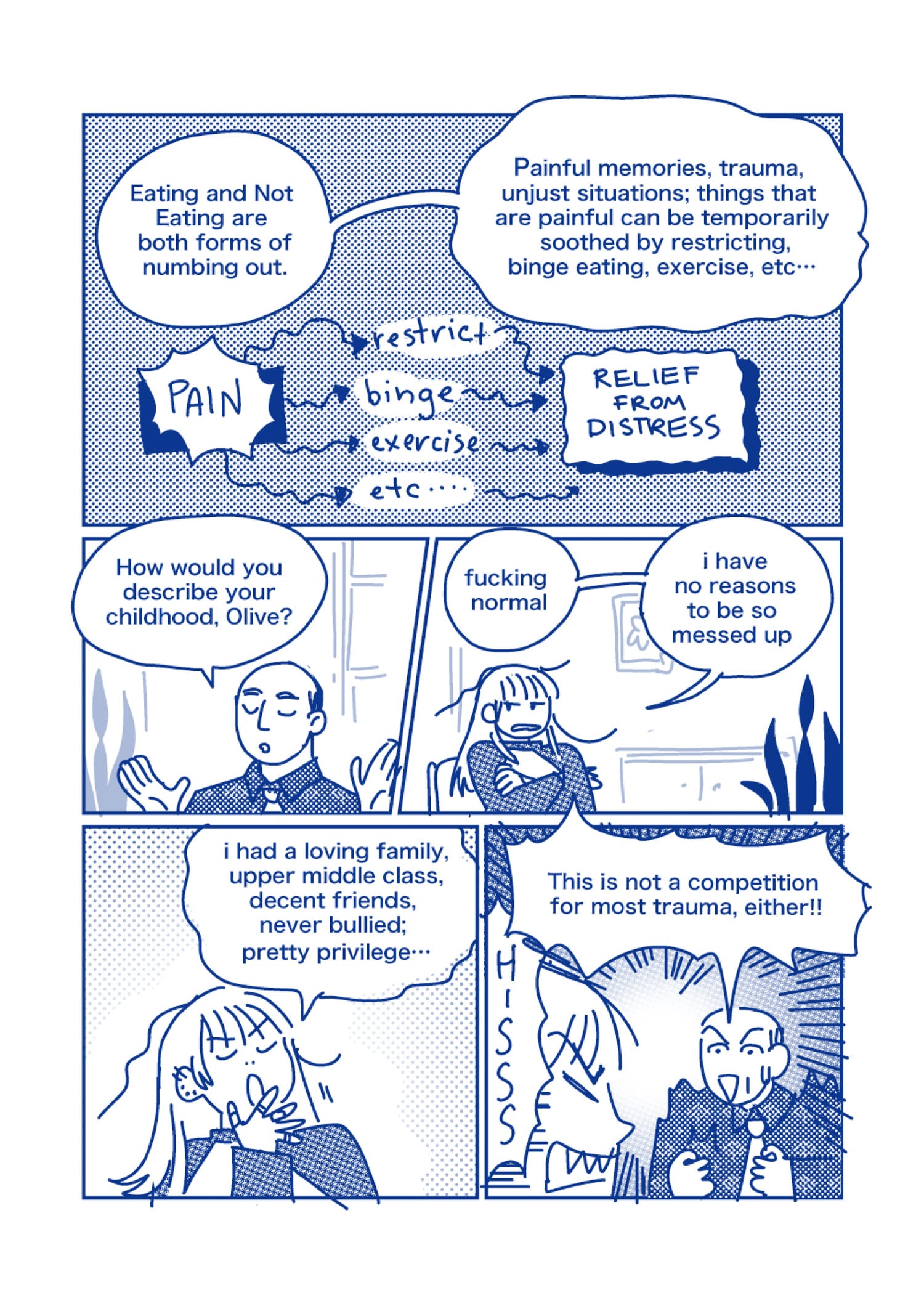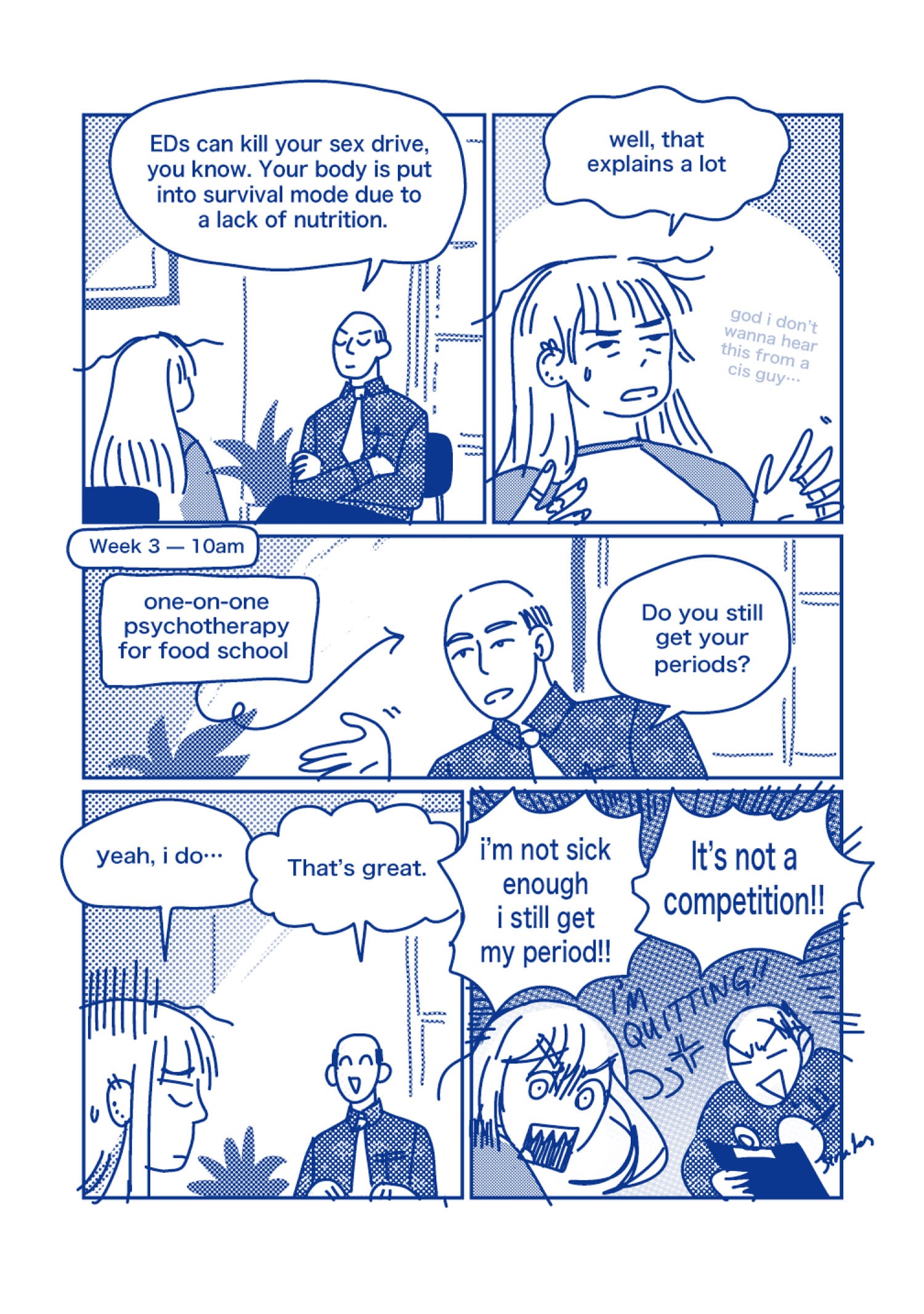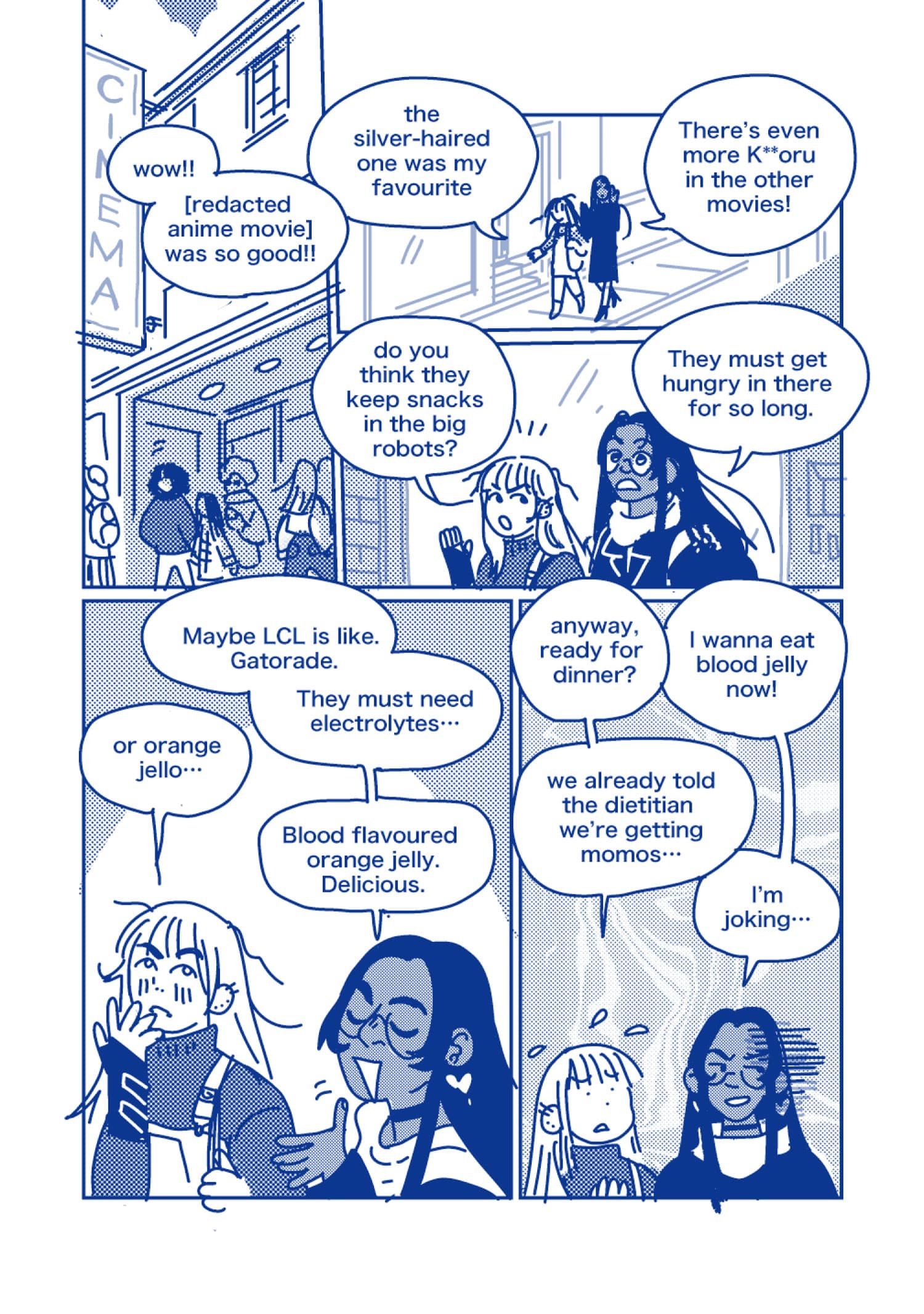

Cartoonist: Jade Armstrong
Publisher: Conundrum Press / $15.00
April 2024
Olive is trying to turn things around. They were in school, had a job as a cemetery groundskeeper to make ends meet, played bass but not really with anybody in a band, in a relationship that’s strained and it shows. Everything is put on pause for Food School, air quotes, though Olive’s lighthearted nickname for it might be misleading. They’ve enrolled in a full-time outpatient program for eating disorder recovery. Jade Armstrong’s original graphic novel records the highs, the lows, the throes on the toilet trying to get a new diet to work. The book shines with its unlikely friendships and in the unforgiving minutiae of self care, rendered with real sweetness and slightly unhinged self-deprecating black humor.
If there’s a word for what kind of comic this is, I don’t know it. Armstrong’s cartooning feels intimate, as if someone authentically knowledgeable is sharing their story. I think I’m hardwired (or overexposed) to comics about rough times that’re relatable and more-or-less true being a memoir graphic novel, a diary comic, a confession or artist catharsis. In Food School, a researched fiction, we’re treated to more than memoir, a memoir mirror. A comic about Olive, not a comic about a thing that makes Olive different. And so: freed to be funny and weird, to pull sequential art tricks that don’t happen in documentaries of people’s lives, but make comics a better read.
The following excerpt from Food School contains discussion of eating disorders:

To me, Food School is perfect. The right amount of detail, the perfect amount of clutter. Flexible enough to hit a range of moods, loose enough that varying the detail plays to the strength of the story instead of acting as a gimmick. It’s got planned punch without losing a drop of natural notebook cartoonery. I just love to see someone who knows how to do it knock one the heck out of the park. Also the navy ink and all those little tone dots, in a pocket edition; it is a very nice object. You can tell Conundrum clearly cares about printing books in addition to publishing cool comics.
Readers in the year 202X don’t have to settle for a story about Olive’s identity instead of a story about Olive. Armstrong drops any assumption about Food School’s experiential relationship to the reader affecting the perspective of the story. If Food School was written to teach you about something, it’s not eating disorders- it’s Olive. It’s also Jam, Jay, Barakah- all the supporting characters are great (in their way), real, with much to teach and not always by being a good example. We are closer to Olive but in Food School Jam is just as real, a person calmly making their way through their own book, with our heroine as their hot mess foil.
Despite the realness it is fiction and Armstrong can’t help but tell the best possible story, breaking the realism mold at any time to go larger than life because why not. The truth is still there, and with their expressive flourishing the comic reads like it feels. There’s an ability to lean into theatricality. An artificial moment can line you up to knock you down, bam. Armstrong turns the spotlight on, and everything outside of the moment on stage simply disappears. What’s inside Olive supersedes the real world of Food School. Everything else stops, nothing else exists, only right now, here, this. Life can feel that way, but does it happen? It happens in Food School.
There isn’t a right way or a wrong way to confront and talk about issues like eating disorders and body image issues, depression, exhaustion. Right and wrong mostly require individual context. So here’s Olive.
Food School is available from Conundrum Press or wherever finer comics and books can be found.
Related
Discover more from reviewer4you.com
Subscribe to get the latest posts to your email.







